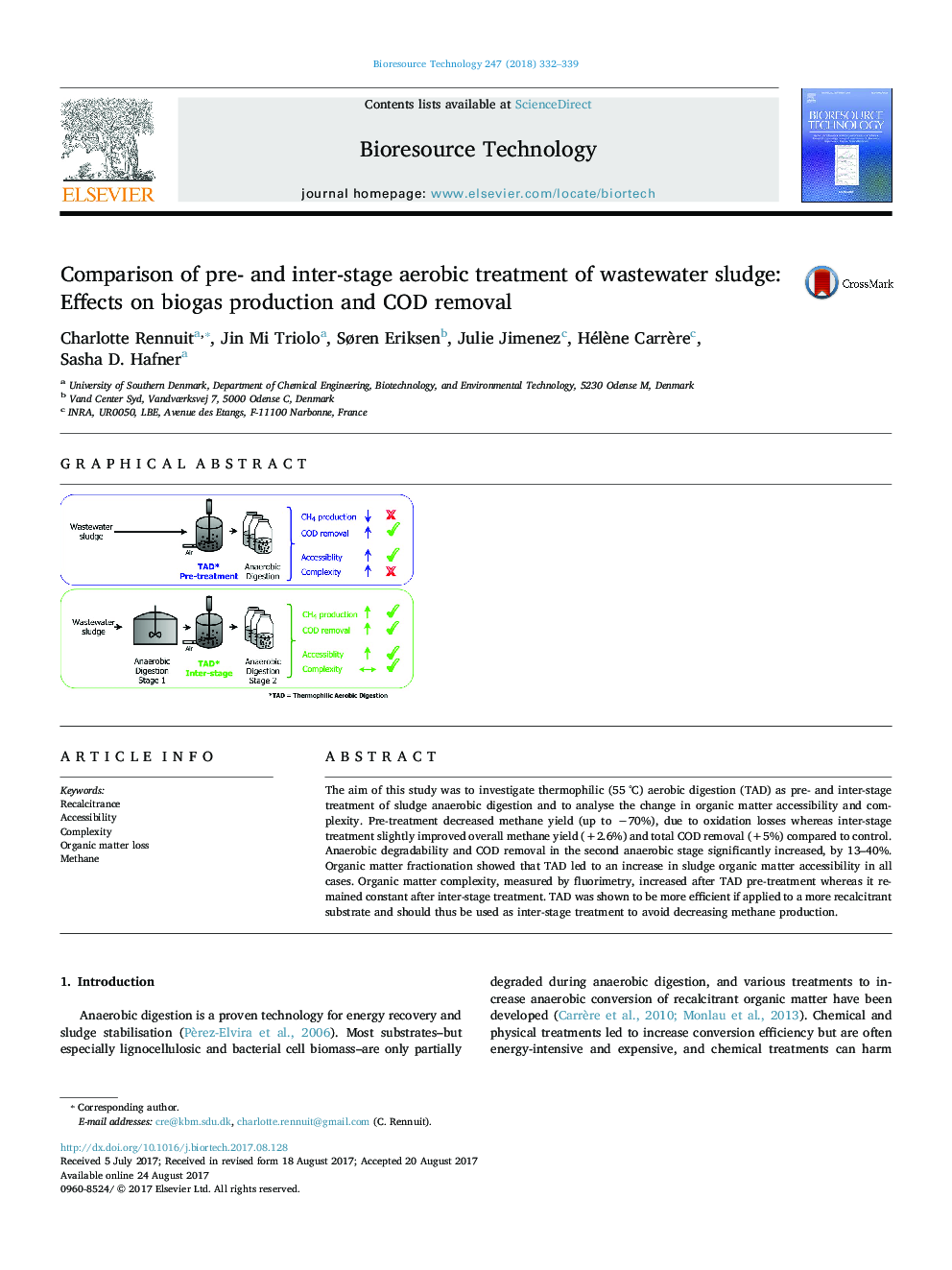| Article ID | Journal | Published Year | Pages | File Type |
|---|---|---|---|---|
| 4996656 | Bioresource Technology | 2018 | 8 Pages |
â¢Inter-stage TAD had less oxidation loss than pre-treatment.â¢TAD pre-treatment reduced CH4 yield while inter-stage increased it slightly (1.8-2.6%).â¢Combined anaerobic/aerobic treatment can substantially increase COD removal.â¢TAD increased methane yield from previously digested sludge >40%.â¢TAD treatment is best for recalcitrant substrates or in an inter-stage configuration.
The aim of this study was to investigate thermophilic (55 °C) aerobic digestion (TAD) as pre- and inter-stage treatment of sludge anaerobic digestion and to analyse the change in organic matter accessibility and complexity. Pre-treatment decreased methane yield (up to â70%), due to oxidation losses whereas inter-stage treatment slightly improved overall methane yield (+2.6%) and total COD removal (+5%) compared to control. Anaerobic degradability and COD removal in the second anaerobic stage significantly increased, by 13-40%. Organic matter fractionation showed that TAD led to an increase in sludge organic matter accessibility in all cases. Organic matter complexity, measured by fluorimetry, increased after TAD pre-treatment whereas it remained constant after inter-stage treatment. TAD was shown to be more efficient if applied to a more recalcitrant substrate and should thus be used as inter-stage treatment to avoid decreasing methane production.
Graphical abstractDownload high-res image (167KB)Download full-size image
